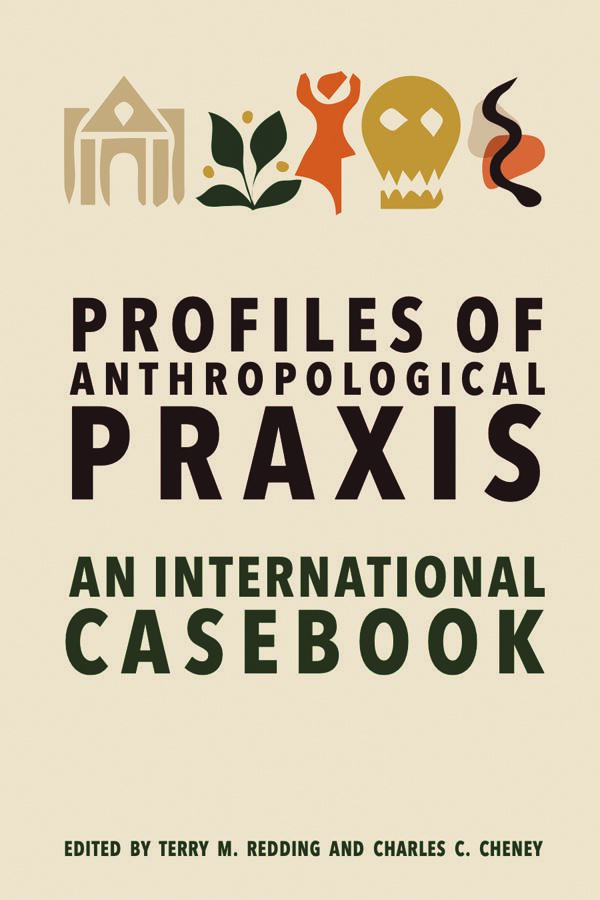wASHINGTON ASSOCIATION OF PROFESSIONAL ANTHROPOLOGISTS |
Profiles of Anthropological Praxis: An International Casebook
Click here to view a recording of presentations by four award recipients featured in the casebook.

Thirty-five years ago, Praxis Award founder Bob Wulff and co-director Shirley Fiske edited a volume called Anthropological Praxis: Translating Knowledge into Action (1987, Westview Press), based on narrative descriptions from Praxis Award winners. WAPA is happy to announce that a sequel is now available.
Profiles of Anthropological Praxis: an International Casebook features chapters on all 22 Praxis Awards given over the past 10 years (2009-2019), including both winners and honorable mentions. Each chapter describes a problem and how a project attempted to address it with the following structure: Problem Overview, Project Description, Anthropologist’s Role, Outcomes, and the Anthropological Difference – that is, how the unique approaches of anthropology were effectively applied to address human problems.
The 22 projects described were carried out in a wide variety of settings in the United States, Asia, Africa, and Latin America, with scopes of work that ranged in dimension from small community efforts to national and multinational endeavors. The authors (including a few who will be quite familiar to WAPA members!) describe how they applied anthropological knowledge and methods, and most have included personal reflections and updated epilogues to bring their work into current focus. A table of contents is found below.
This book is very relevant to anthropology education in general, and it would be especially useful as a casebook for upper-division college classes and graduate seminars in applied anthropology, culture change, and medical anthropology, among others. Profiles of Anthropological Praxis should also be of value to professionals interested in understanding how recent anthropological projects are successfully designed, managed, and concluded. The chapters will also be relevant to social scientists and public policy professionals concerned with the planning, performance, and evaluation of social, economic, and health change initiatives in the United States and internationally.
Profiles was edited by past Praxis Award Chairs Terry Redding and the late Charlie Cheney. The paperback edition came out in early 2024 for $35. It is also available as an e-book for $35 through the Berghahn Books website, and in hardcover for $135 plus shipping. You can also explore purchasing options on Amazon.
Profiles of Anthropological Praxis: An International Casebook
Edited by Terry M. Redding and Charles C. Cheney
326 pages, 13 illus., bibliog., index
ISBN 978-1-80073-466-1 (hardcover)
Contents
Foreword: The Emergence of WAPA and Birth of Praxis
Shirley J. Fiske and Robert M. Wulff
Introduction
Terry M. Redding and Charles C. Cheney
Part I. Economic Development
Chapter 1. Emergency Food Security Recovery: An Afghanistan Case
Adam Koons
Chapter 2. Ecotourism in One Amazon Community: My Role as Anthropologist, Witness, Scribe, and Facilitator
Amanda Stronza
Chapter 3. Ethnic Minority Women-Led Routine Road Maintenance in Vietnam
Mari Clarke
Part II. Communities and the Environment
Chapter 4. Co-management of Natural Resources in Puerto Rico: Applied Anthropology, Public Access, and Environmental Public Policy
Federico Cintrón-Moscoso
Chapter 5. Deal Island Peninsula Partnership: Applying Environmental Anthropology, Ethnography, and Collaborative Learning
Michael Paolisso, Elizabeth Van Dolah, Katherine J. Johnson, and Christine D. Miller Hesed
Chapter 6. Marcellus Shale Public Health Study
Thurka Sangaramoorthy
Part III. Cultural Preservation
Chapter 7. The Denver Museum of Nature & Science Repatriation Initiative
Stephen E. Nash and Chip Colwell
Chapter 8. Alan Boraas and Kahtnuht’ana Qenaga: Preserving and Renewing an Alaska Native Language
Kerry D. Feldman and Phyllis A. Fast
Chapter 9. San Diego’s Little Saigon: Using Anthropologically Informed Outreach to Create a New Public Space
Stephen Weidlich
Part IV. Health Promotion and Management
Chapter 10. Pastors at Risk: Toward an Improved Culture of Health for United Methodist Clergy in North Carolina
Cathleen E. Crain, Nathaniel Tashima, and Terry M. Redding
Chapter 11. Anthropology in an Epidemic: Ebola in West Africa
Olive Minor
Chapter 12. Caring Together, Living Better: Anthropologists’ Contributions to a Caregiver Support Program in the South Suburbs of Cook County, Illinois
Rebecca L. H. Berman and Madelyn Iris
Chapter 13. A Video Ethnographic Study: Raising Healthy Children in Poverty and Examples of Excellence in Addressing Childhood Wellness
Cathleen E. Crain, Nathaniel Tashima, Reiko Ishihara-Brito, and Erick Lee Cummings
Part V. Sociocultural Change and Adaptation
Chapter 14. Dug-Well Revival: An Ethnographic Project for Drinking Water in North Bihar, India
Luisa Cortesi
Chapter 15. A New Model for News: Studying the Deep Structure of Young-Adult News Consumption
Robbie Blinkoff
Chapter 16. Learning to Live with Difference: How CEDAR Takes Anthropology Out of the Classroom and Into the World
David W. Montgomery, Adam B. Seligman, and Rahel R. Wasserfall
Chapter 17. Birangona: Toward Ethical Testimonies of Sexual Violence during Conflict
Nayanika Mookherjee
Part VI. Policy Change
Chapter 18. Anthropology in Action: An Anthropologist’s Role in Restoring US Support to the United Nations Population Fund
Barbara Pillsbury
Chapter 19. Decent Care: Shifting the Healthcare Paradigm
Cathleen E. Crain and Nathaniel Tashima
Chapter 20. Persistent Undercounts of Race and Hispanic Minorities and Young Children in U.S. Censuses
Laurie Schwede
Chapter 21. Using the Concept of Social Well-Being: Developing and Implementing a Framework for UNICEF Planning and Evaluating Efforts to Achieve Rights and Development Goals for Children and Families
Mark Edberg
Conclusion
Terry M. Redding and Charles C. Cheney
Afterword
Riall W. Nolan
Index
Updated 28 January 2023
.gif)